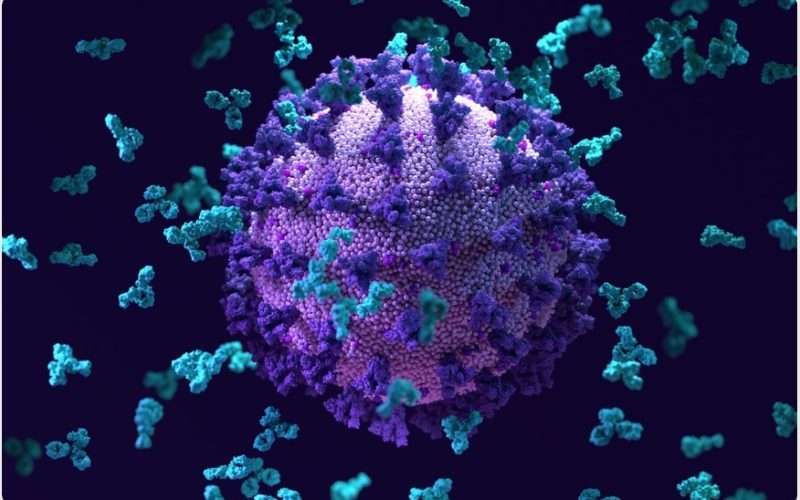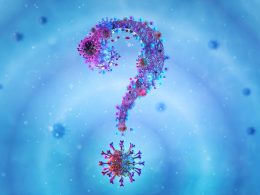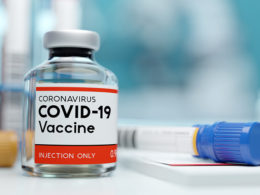Claim. A message circulating online claimed that the Covid-19 Delta variant is more virulent and has a higher death rate.
“Use double masks because the new Covid-Delta is different, deadly and undetectable. With the new Covid-Delta virus there is no cough, no fever; just a lot of joint pain, headache, neck pain, upper back pain, pneumonia, general weakness and no appetite,” read parts of the claim.
The claim also stated that it takes less time for the virus to go to extremes, sometimes without symptoms.
CITE contacted Health Desk experts who said the variant B.1.617.2, also known as the Delta variant, continues to spread rapidly in many countries around the world, and is potentially more dangerous due to its ability to spread faster between individuals, with varying estimates and is 50 percent more transmissible than the Alpha variant.
“The likelihood of hospitalization is double compared to Alpha variant, according to a recent study published by The Lancet,” said the Health Desk experts.
The Health Experts said the main symptoms may be different from previously prevalent variants, which can make it harder for the general public to identify mild infections and self-isolate.
“Data from the Zoe Covid Symptom Study, where participants use a mobile app to report their symptoms, suggest that the symptoms of Covid-19 infections in the United Kingdom are changing; cough and unique symptoms like loss of smell are becoming rare, while headaches, fever, a sore throat and a runny nose are now the most frequent symptoms. This adds to the potential of this variant to spread as it can be easily disregarded by an individual as a common cold, where patients are less likely to self-isolate,” they said.
“However, similar to other circulating variants, the available, authorised vaccines offer a degree of protection against the Delta variant. The same study published by The Lancet suggests that the Pfizer-BioNTech vaccine starts to show strong protection against infection by this variant after 29 days from the first dose, and up to 97 percent protection after two weeks from the second dose,” they said.
“A recent study published as a pre-print in Public Health England shows that individuals who receive two doses of any vaccine have 94 percent protection against being hospitalized due to the Delta variant, and are 80 percent less likely to develop the symptomatic disease compared to individuals who have not been vaccinated.”
The Health Experts said the recommendations to protect oneself from the Delta variant remain the same as previous variants of the virus.
“Get vaccinated when you can, and commit to getting all of the required doses for that vaccine, wearing a mask that covers your nose and mouth protects you and others, maintain social distancing from individuals outside of your household, avoid crowded and poorly ventilated areas and use soap and water to wash your hand frequently and use hand sanitizer if these are not available,” said the Health Desk Experts.
Background: The Health Desk experts said the Delta variant was first detected in India in December 2020 and has since been verified in 77 countries today, rising from 62 countries earlier in June according to the World Health Organisation.
“Its ability to transmit quickly between individuals and countries is causing a shift in the prevalence of disease in some regions, perhaps most notable in the United Kingdom where it is now responsible for 91 percent of Covid-19 cases in the country,” they said.
“All viruses are subject to change in their characteristics, due to repeated mutations in their genes during the process of replication. Scientists attribute this variant’s ability to transmit faster to changes in the proteins on the surface of the virus, known as spike proteins, which allow it to bind more efficiently to the cell mechanism it uses to enter human cells.”
“Additionally, a separate study has suggested that the variant may have a greater ability to latch on to human cells, thus it has the potential to infect more cells and overwhelm the immune system,” said the experts.
The Health Desk Experts added that the variant is now rising in other European countries such as Denmark, and World Health Organization officials are fearful of it becoming the dominant strain in Europe soon, and hoping that increasing vaccinations can help keep it at bay.
“There is a similar rise in the United States, where the Centre for Disease Control and Prevention is now tracking the spread of the Delta variant as a variant of concern. Alpha remains the dominant variant, however, data from nationwide sampling conducted by the genomics company Helix, suggests that the Delta variant is rising fast in California, replacing the Alpha variant, which now accounts for 42 percent of cases after having previously accounted for 70 percent of cases, in April.”
The Health Experts said while factors like restricted travel, access to vaccines, and increasing vaccination rates can help control the spread of the Delta variant, scientists are closely watching it for its potential to become the dominant strain globally, and fearful of the consequences of its spread to countries with fewer resources, and less effective disease surveillance.








